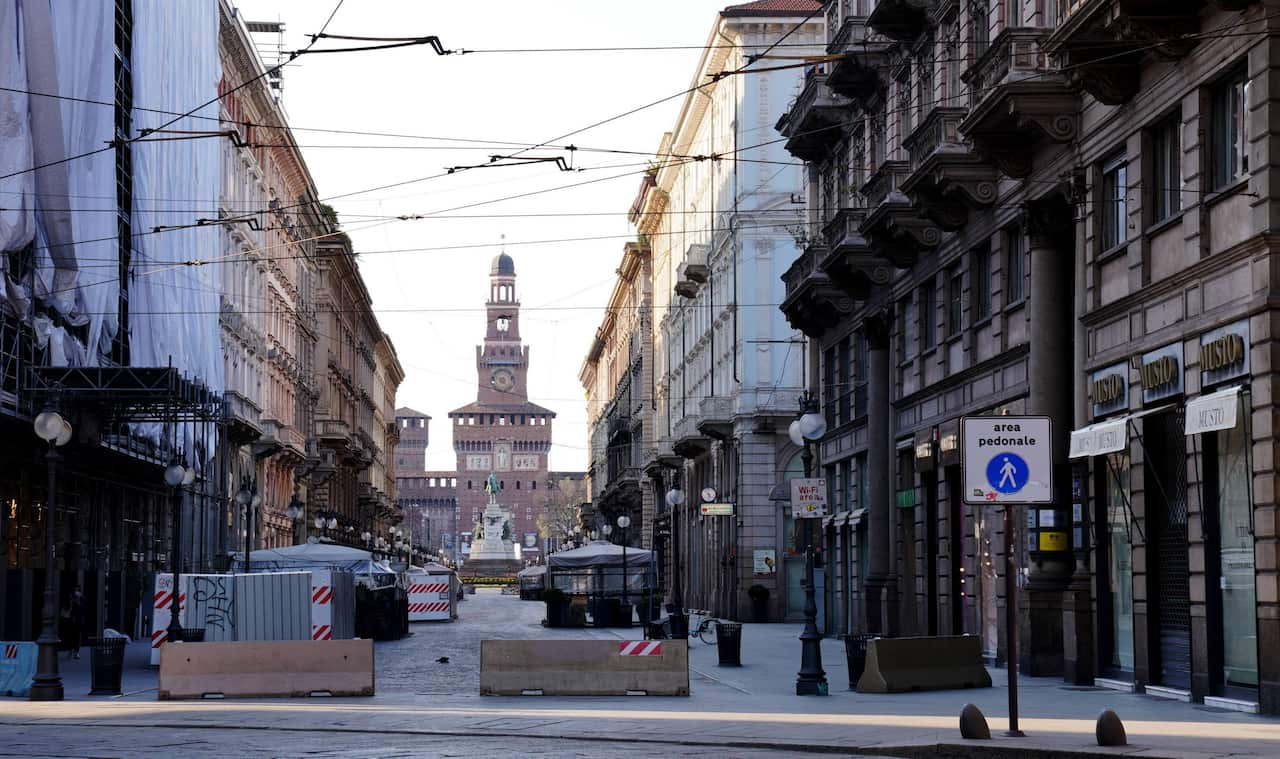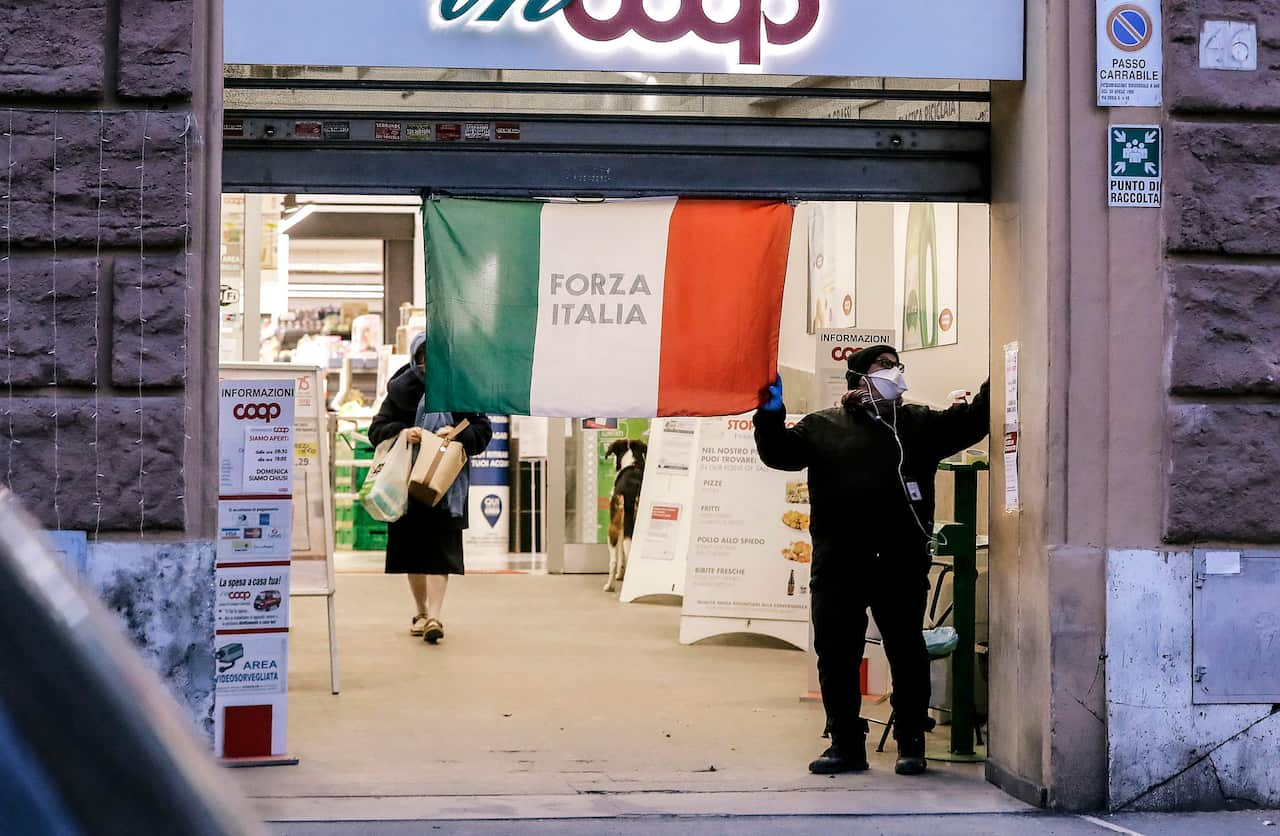Italy has received more reassuring evidence that its coronavirus infection rate is slowing thanks to a painful lockdown that other nations are starting to apply at great economic cost.
Health officials across the ravaged Mediterranean country are poring over every new piece of data to see whether two weeks of bans and closures have made a dent in the crisis.
The harshest restrictions are theoretically due to expire on Wednesday evening - although the government is all but certain to extend them in some form for weeks or even months.
Italy's 743 new deaths broke two days of successive declines that had taken the number down to 601 on Monday.
It set a world record of 793 fatalities on Saturday.
But officially registered new infections rose just eight per cent - the same as Monday and the lowest level since Italy registered its first death on February 21
It had been running at as high as 50 per cent at the start of March.
"The measures we took two weeks ago are starting to have an effect," Civil Protection Service Chief Angelo Borrelli told the daily La Repubblica before Tuesday's toll came out.
He said more data over the next few days will help show "if the growth curve is really flattening".

Few scientists expect Italy's numbers - if they really are dropping - to follow a steady downward line.
The slowing contagion rate is at least offering a ray of hope in the midst of a global health emergency that is only deepening in other parts of Europe and the United States.
Scientists believe that countries such as Spain and France are following in Italy's footsteps with a lag of a few weeks.
The numbers from the US are also similar to the track of those of Italy about 20 days ago.
Most other European nations and some US states have followed Italy's example and imposed their own containment and social distancing measures designed to stop the spread.
Eyes on Italy
The data that Mr Borrelli has gathered from Italy's 22 regions are of crucial interest to global policy makers and medical experts.
Government are weighing the potential benefits of Italy's measures against their damage to the economy and families' livelihoods.
Big global banks think the business closures have plunged Italy into a deep recession that could be more severe than anything seen in decades.
But the country's world-class health system is also straining and the government appears intent on helping it cope at any price.
The country's daily deaths are also still higher than those officially recorded in China at the peak of its crisis in Wuhan's Hubei province.
Both Italy's and Hubei's populations are around 60 million.
Italian officials are using the downward trend in new infections to double down on their insistence that people stay home at all times.
Prime Minister Giuseppe Conte on Tuesday cranked up fines for those out on the streets without a legitimate reason from the current 206 euros to 400-3,000 euros ($A726-$A5,448).
"Everyone must do their part," Mr Conte said in a televised address.

Mr Conte added that he was "very confident" that Italians could resume their normal lives before the current general state of emergency expires on 31 July.
Italy is perplexed over how it managed to become the global epicentre of a pandemic that began on the other side of the world.
Various Italian officials publicly scoffed at early reports of a new killer disease rapidly spreading across northern stretches of the country.
Mr Borrelli pointed to a Champions League match between Italy's Atalanta and Spain's Valencia football clubs in Milan on February 19 as a particularly egregious mistake.
It was attended by 40,000 fans who celebrated the local team's win deep into the night.
"We can now say, with hindsight, that it was potentially a detonator," Mr Borrelli said of the match.
Australians must stay at least 1.5 metres away from other people. Indoors, there must be a density of no more than one person per four square metres of floor space.
If you believe you may have contracted the virus, call your doctor, don’t visit, or contact the national Coronavirus Health Information Hotline on 1800 020 080.
If you are struggling to breathe or experiencing a medical emergency, call 000.

